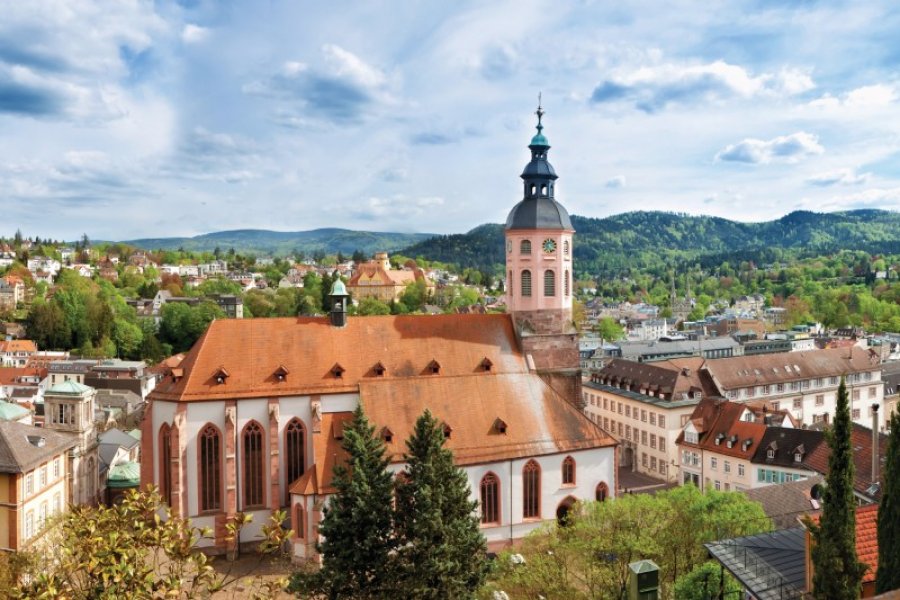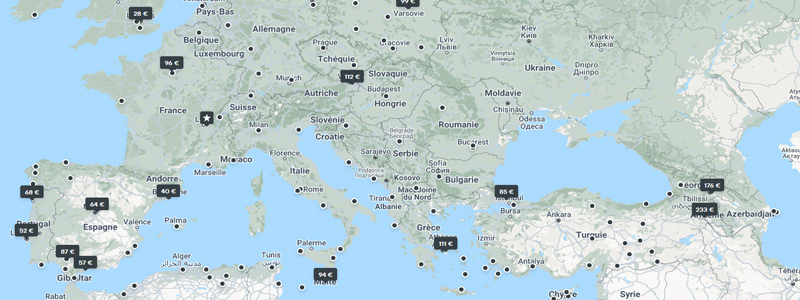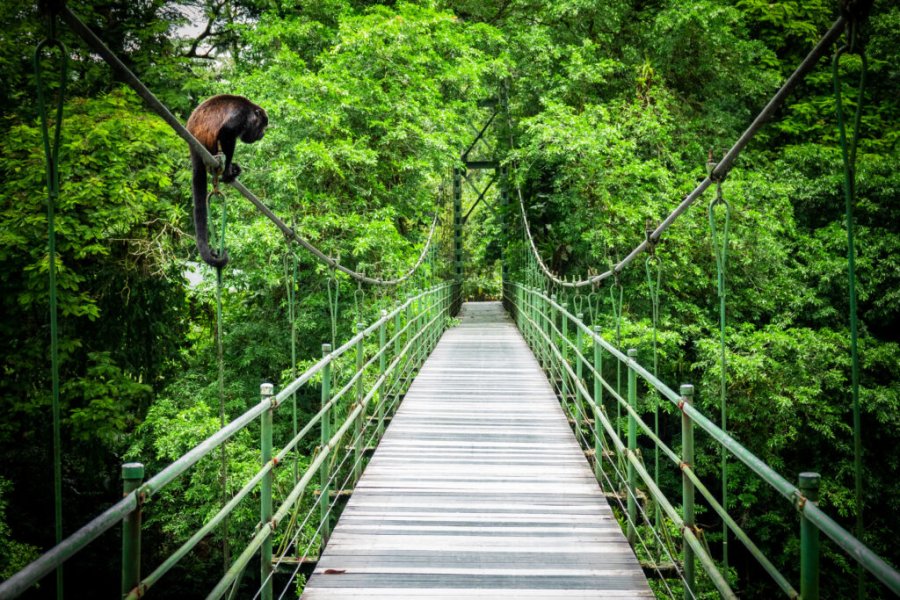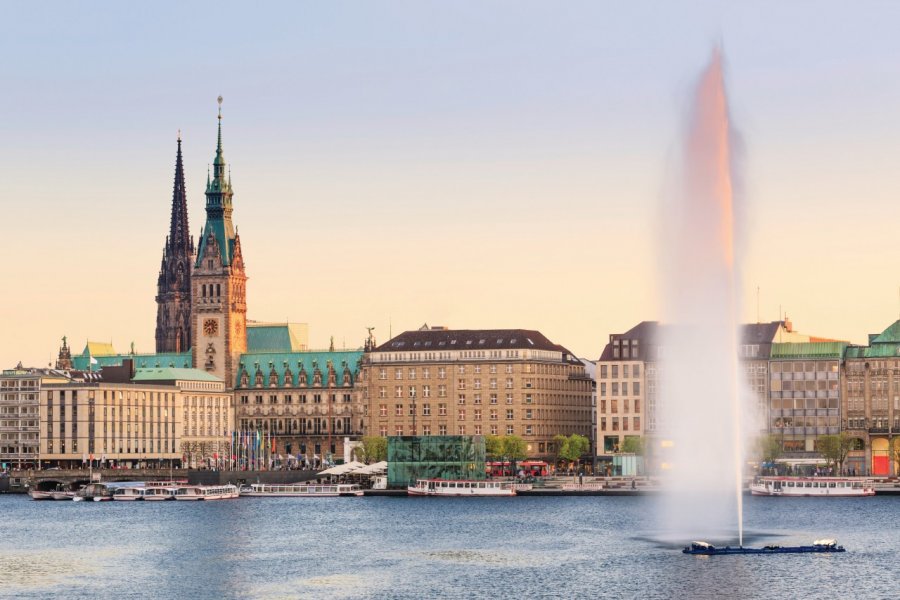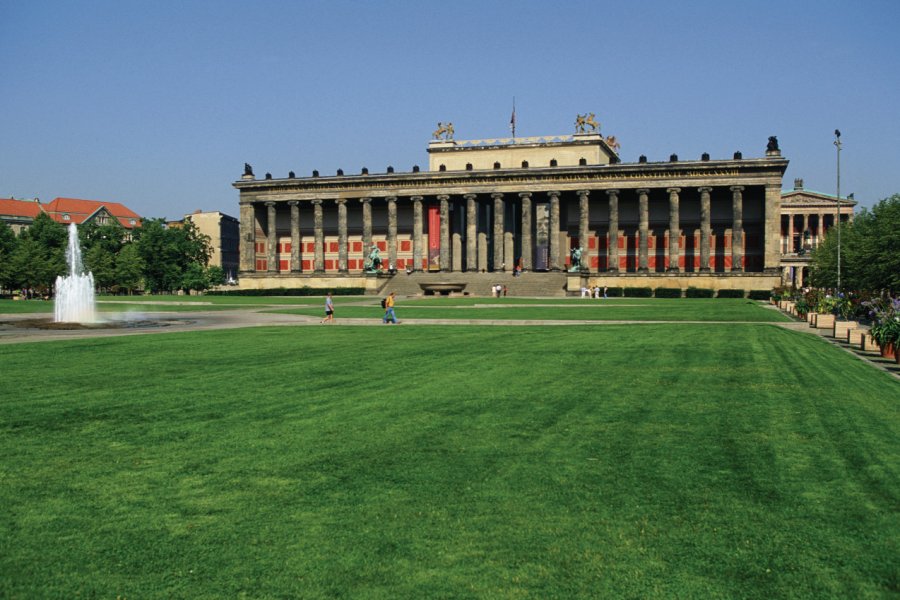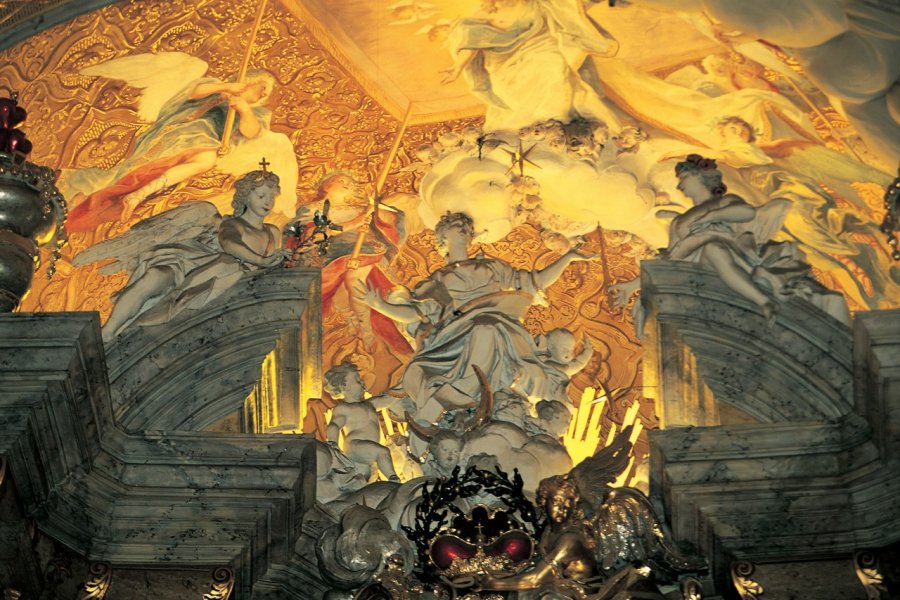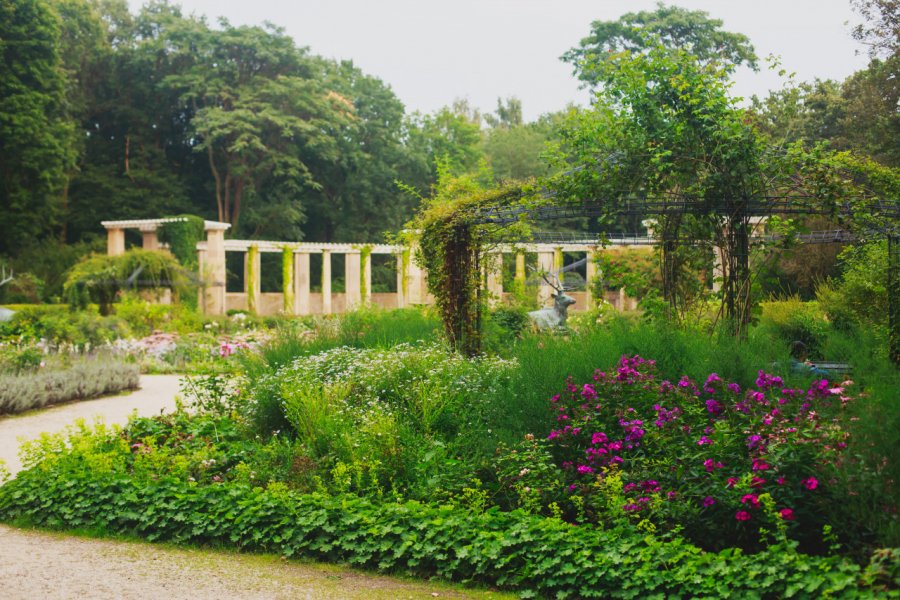Travel guide Germany
A country of immense contrasts, between East and West, Germany is a land of incredible richness, as any tourist guide to Germany you read will highlight. Its heritage, nature, culture, crafts and industry make it one of the most influential countries in Europe and the world. A country of free, charismatic and dynamic cities, the region is criss-crossed by superb rivers, covered with hills, low and medium mountains, agricultural plains and immense forests. Filled with castles and churches, history can be read everywhere. The Germans have built themselves a pleasant living environment, with a decent urban planning, punctuated by a mug of beer, a sausage stand, cafés and bistros, parks occupied by all, green leisure activities... The country also has an exceptional cultural offer with a high quality of museums, music and iconography; a generous, modern cuisine open to outside influences; a great diversity, if we consider the contrast between the conservative Bavarian countryside and the alternative environments of Hamburg or Berlin, between Cologne and Bremen. It will feature the most rigorous philharmonic orchestras alongside the most avant-garde sound experimenters. And this trend can be found in all areas. So well known for its economic efficiency, its cars and its exports, Germany is still too little known for tourism. It is however a first choice destination, with many treasures in its bag that you will discover with your travel guide.
What to see, what to do Germany?
-
Book an activity
-
Customized travel
- The most beautiful cities Germany
When to go Germany ?
Wondering when to go to Germany? Easy: all year round! The ideal time to discover Germany, however, is from May to October; note that springs are often very beautiful and make Germans in a very good mood! They invade parks and docks, cities are covered with attractive terraces.... Summer is of course ideal, especially since although they are beautiful, they are rarely hot and are more pleasant than in southern Europe. Early autumn (September-October) dresses the forests and parks in magnificent colours, making it an ideal season to travel in the countryside, along rivers and through hills and mountains. While winter is rarely the preferred season for visitors, Advent (three weeks before Christmas) is quite exceptional thanks to the presence of very festive Christmas markets across the country.
Finally, important and interesting events take place every month and each of them can be the occasion for a stay in Germany (Cologne Carnival, Oktoberfest in Munich, Berlinale, Frankfurt Fair...).
Suggested addresses Germany
Travel Germany
-
Find a hotel
-
Car Rental
-
International e-SIM package
-
Find a local agency
Find unique Stay Offers with our Partners
How to go Germany
How to go alone
It is very easy to go alone in Germany, the road, rail and air transport networks being very developed and the means to get there are legion (plane, train, bus, car...). Moreover, the country benefits from an excellent level of security which allows everyone to discover Germany without any problem. However, beware of pickpockets in tourist areas and large cities, especially Berlin and Munich.
How to go on a tour
The offer is diverse and varied to discover Germany. Hiking in the Bavarian mountains and the Black Forest, city trips to Berlin or Hamburg, romantic and cultural stays in Dresden: the possibilities are endless. The destination lends itself to several types of stays. Given the variety of offers, prices are adapted to small budgets, but also to those who are looking for a charming stay.
How to get around
To move between different cities or regions, there is a lot of domestic air transport. The rail network is also very present and denser than in France. You can also make excursions on German rivers. Finally, the car is also ideal for independent travel, but not very practical in the city. In the city, public transport (bus, metro, tramway) is very developed.
Featured articles Germany
Discover Germany
Your trip is getting closer and closer, and the excitement is at its peak, so let us give you a few tips on how to organize your stay properly. In a country like Germany, where people like to anticipate things and have everything well organized, you're going to have to adapt and leave your French spontaneity behind. But that's what makes us so charming in German eyes. In this section, you'll find out how to get to Germany, but also how to get around the country. Both are relatively easy, given the many connections with France and the excellent German road and rail networks. Here you'll also find some tips on how to keep up to date with German tourism news.
Pictures and images Germany
The 12 keywords Germany
1. #Alternativ
Cars, Bild-Zeitung, television, family, consumerism... German society juggles conservatism and capitalism. In the face of the economic miracle of the 1960s, a certain group of young people created a solid alternative scene that endures to this day. Every generation knows powerful holders of theAlternativ torch. Counter-culture?
2. #Bio
Pioneers in Europe, the Germans are adept at organic food. The country has a hygienic approach to food and consumption. Organic food is a real market, with its own stores, supermarkets and shelves, even in discount stores. Restaurants are happy to display the label. Organic food is part of the Germanic consumer culture.
3. #Deutsches brot

German bread(Deutsches Brot) is a UNESCO World Heritage Site. This staple of German gastronomy is part of the German identity. It comes in several thousand varieties, the best known being the pretzel. Then there's Weissbrot (white bread), Schwartzbrot (black bread) and Pumpernickelle Pumpernickel (rye bread).
4. #Frühstück
Breakfast is a real meal, at least at weekends, when the Frühstück takes on the appearance of a brunch, with cold meats (sausages are a must), muesli, cereals, bread, jam, cheese and eggs, yoghurt and fresh fruit. On weekdays, a lighter version of breakfast consists of coffee, bread and jam, and a soft-boiled egg.
5. #Gemütlichkeit
A German concept for material well-being. Gemütlichkeit aims to provide sufficient comfort for a pleasant, relaxed quality of life. Inns, bars and quiet restaurants are all part of it, as are shared gardens with deckchairs, green towns with small shops, wurst stands, bike paths and wide sidewalks.
6. #Multikulti
A slogan of the post-modern Germany of 1968, which, contrary to the cult of the Heimat, advocates a Germany free of ethnic nationalism, multicultural, open to the world and proud of the contributions of foreign cultures linked to immigration. This affection for diversity is particularly prevalent in the urban scene.
7. #Prost!
You look the person you're toasting in the eye before opening your mug of beer! But good manners dictate that you say Zum Wohl or Zum Wohle, which is a wish for the well-being of the person you're toasting(wohl sein means to be well, in good health), whereas Prost or Prosit, which means to help, is a more vulgar expression.
8. #Reichstag

The monumental Reichstag remains the symbol of German reunification. With its impressive glass and steel dome, the building houses the Bundestag, the German parliament. Its architecture expresses the political class's desire to open up to its citizens, and the free and uninhibited exchange of ideas between past and present.
9. #Technology

Germans have a passion for technology. Mining, manufacturing, construction - industrial development has formed the core of German society for centuries. Technology is at the heart of German identity, culture, passions and leisure activities, and thus of tourism. On the program: visits to plants, factories, mines...
10. #Autobahn
German freeways are world-renowned for their no-speed-limit sections. Two-thirds of the network is covered. A symbol of technology, efficiency, safety and freedom, theAutobahn is a central theme in society, which makes it a point of honor to keep it generally free for cars.
11. #Bike
Here, the bicycle has found its enthusiasts, even its militants. Many Germans of all generations choose to get around by bike. In Münster, queen of the genre, there is reportedly more than 1 bicycle per inhabitant... Early lobbying for the creation of bicycle paths and other suitable infrastructures has resulted in the country's exemplary equipment.
12. #Wurst

Wurst is a mainstay of German cuisine, and not just in sauerkraut. It's available plain, with cheese, Currywurst, Bratwurst, Weißwurst, poached, grilled, sliced, hot, cold, on the go, from morning to night. The lightly smoked Bockwurst, created in 1889 by Berlin restaurateur Scholtz, is a classic.
You are from here, if...
You respect wastesorting for your garbage.
You're addicted to sparkling water, even to the point of putting it in juice or wine.
You refrain from interrupt ing your interlocutor.
You follow the rules to the letter. Germans don't like it when their rules are broken.
You wait for the light to turn green before crossing the road.
You are punctual, a rule of etiquette highly respected in Germany.
You use the titles Herr, Professor, Doktor to address your titled interlocutors.
You don't forget to tip 5-10% in cafés and restaurants.
The community comes before the individual, so you don't make noise in public places, and don't eat smelly food in public transport.
Your windows are open in summer and winter.
You'redirect and clear in your exchanges, without convoluted formulas or unnecessary detours; beating around the bush isn't customary.
You eat a king's breakfast and lunch on the run.

